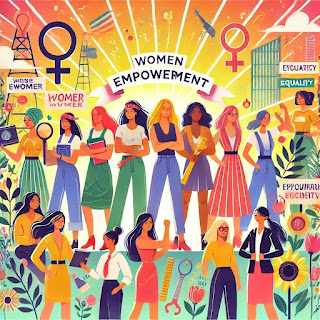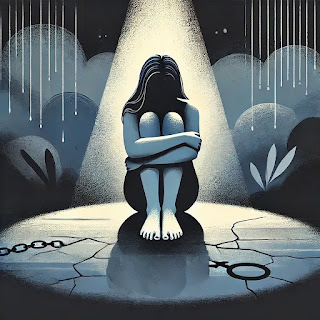Empowering Voices: A Deep Dive into Feminism and Equality
Recently, we had the privilege of sitting down with Mrs. Aryamba SN, who has successfully navigated the complexities of professional growth and also made a significant impact in the sphere of Women’s rights and empowerment. In this insightful interview, she shares her path to becoming the President of the Equality and Empowerment branch in WICCI Maharashtra, describing her lifelong passion for justice and fairness.
Her achievements are impressive and include winning a city event in Pune, being crowned Mrs. India Elixir, winning a sports category in Bangalore, and excelling in an international task-based pageant in 2022. Her writing journey is also noteworthy, as it includes her work on an anthology titled *Strings Attached* and editing other books. Through her work, she met Radhika Sudhir, the National President of WICCI, who appointed her as the Maharashtra President of the Equality and Empowerment wing due to her grassroots-level activism.
"Ever since I was a child, I have had a strong sense of justice and fairness, and as I grew up, that sense became stronger in me. I can’t tolerate any injustice around me or anywhere in the world," she explained.
She has worked in the IT industry, taught in a college in Dhaka, and even spent time at Amazon.
 When asked how she would define feminism, she said, "I think feminism is not about elevating one gender above the other. It is about striving for equality of both genders, treating every human equally, and ensuring that human rights are given to each individual, whether it's a boy or a girl. It all boils down to humanity. I feel the media has a lot of responsibility when they are presenting content; they need to take care of what they are showcasing because the audience is diverse. We also need to be mature enough to decide what to absorb and what to filter out."
When asked how she would define feminism, she said, "I think feminism is not about elevating one gender above the other. It is about striving for equality of both genders, treating every human equally, and ensuring that human rights are given to each individual, whether it's a boy or a girl. It all boils down to humanity. I feel the media has a lot of responsibility when they are presenting content; they need to take care of what they are showcasing because the audience is diverse. We also need to be mature enough to decide what to absorb and what to filter out."
She shared, "Recently, I watched *La Pata Ladies,* which sends a beautiful message. It shows some of the feminine sides of a male character, which will affect society and make an impact, especially on the young people who absorb those good qualities."
Speaking about patriarchy and Indian society, she mentioned, "In the context of India, the patriarchal system is deeply woven into the fabric of society, dictating the roles of women, the family structure, and societal norms. Patriarchy affects women's lives at every level, giving more dominance to male presence in decision-making. Is it still relevant? Yes. I think the whole world is patriarchal, more so in Southeast Asian countries, especially in India. I believe it can be dismantled by providing good education, raising awareness, and making efforts to redefine and challenge societal norms and gender roles. We need to include men in this movement to dismantle patriarchy. If we want to address patriarchy in the long run, we need to work at the grassroots level, such as in schools, families, and communities."
She further emphasized, "The patriarchal system manifests itself in the name of traditional cultures and family structures. Once you are financially dependent on a man, your whole decision-making power goes away. So if you are financially independent, you will have a say in decision-making in your life. You will be the CEO of your life. The barriers include lack of education, falling into societal norms, and being financially dependent. As women, we should work towards making ourselves capable of standing up for ourselves and becoming financially independent."
When asked for advice for young women navigating challenges in the workplace or educational institutions, she advised,
"Take mentorship, guidance, and support from your network. The most important thing is to be well-educated. Up-skill yourself because what was relevant five years ago might not be relevant now. So keep learning new skills and be financially independent, as it gives you decision-making power in your life. For women who are working, whether single, unmarried, a single parent, or living with a family—regardless of the situation—the most important thing in your life should be taking care of yourself."As our conversation drew to a close, we touched on the future of work and how emerging trends might shape careers in the years to come. She expressed optimism about the possibilities but also cautioned that the future will demand even greater adaptability. "Technology is transforming the way we work, and with that comes both challenges and opportunities. Those who are open to learning and evolving will not only survive but thrive," she concluded.
Looking to the future, she expressed hope for the younger generation. "This world belongs to young people because they are the future generation. I dream of a world where each one gets equal opportunities, access to good education, and where humanity is respected. A soul doesn’t know whether it's male or female; a soul knows only a soul. A soul's dream is just a dream, not a male or female."






Comments
Post a Comment